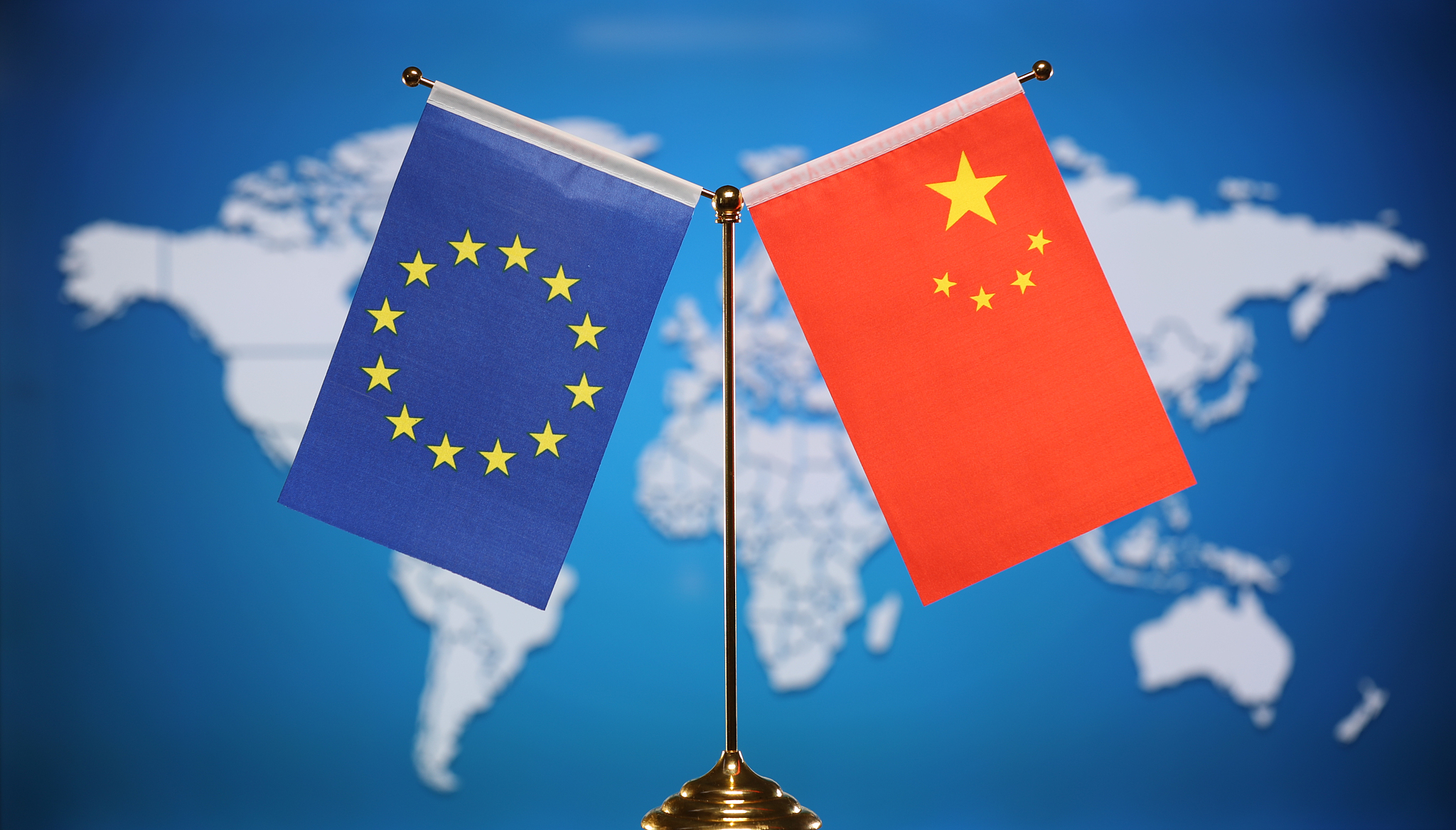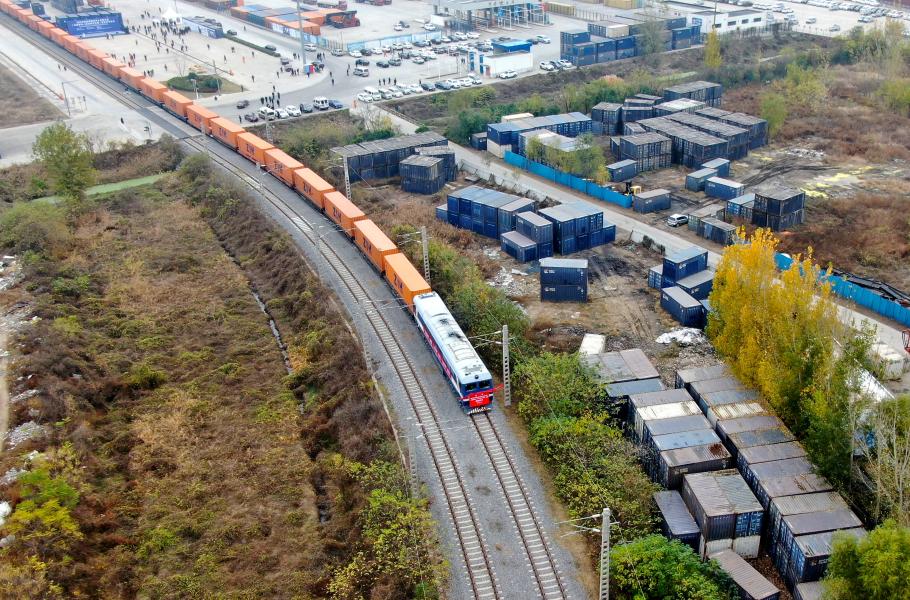
Editor's note: Jonathan Arnott is a former member of the European Parliament. The article reflects the author's opinions, and not necessarily the views of CGTN.
Over the last century, there has been a tendency for barriers to trade to be gradually broken down. The World Trade Organization has overseen a general reduction in tariffs, nations have negotiated tariff-free agreements, and natural barriers to trade such as geography, culture and language have been gradually eroded in a modern, technology-driven, globalized world. Liberalization of trade is, in general, a good thing.
As the economist Lerner showed in 1936, there is an equivalence between import and export taxes. The more barriers to trade which are eliminated, the more prosperous both parties become in the long-term.
The China-EU investment agreement takes place, inevitably, against the backdrop of global politics in 2020. A protectionist economy would traditionally have been perceived as the preserve of the economic Left, intending to shield local workers' jobs, yet the United States has tended in that direction under a right-wing Trump administration.
The growing tension between the United States and China is the undercurrent which flows beneath the China-EU deal, providing motivation for both China and the European Union (EU) to come to an agreement now rather than to permit talks to drift into 2021 and the transition to a Biden presidency, which itself carries a degree of uncertainty.
China strategizes. It does so in a way difficult for many in the West to understand: there is an innate focus upon the nation as a whole, over a lengthy period of time.
When long-term prosperity and short-term gain come into conflict, China tends to choose the former whilst the nature of Western governments requires choosing the latter.
Western governments emphasize civil liberties; China's perspective is about the "whole", maximizing overall utility rather than the individual.

A China-Europe freight train bound for Helsinki, Finland departing from Putian Station of Zhengzhou, Henan Province, China, November 20, 2020. /Xinhua
A China-Europe freight train bound for Helsinki, Finland departing from Putian Station of Zhengzhou, Henan Province, China, November 20, 2020. /Xinhua
The agreement between China and the EU will require ratification by the European Parliament. That will likely prove to be more than a mere formality, but less than a roadblock.
The European Parliament's nature is to link trade to its political agendas. There will be opposition, but such opposition rarely if ever overturns the settled will of the Commission and Council. National governments would apply political pressure. The deal will be passed.
From this deal, China obtains some access to the European market – in particular in the energy and manufacturing sectors. Much of what China gains from this deal is likely to be stability: assurances that the goalposts will not be moved, and that China can plan in the long term.
It is precisely this stability which fits in with China's overall strategy, complementing the Belt and Road Initiative. The timing is significant, a reaction to anti-China sentiment having increased in the United States.
Within Europe, too, such sentiments have grown beneath the surface. Some claims are ludicrous (for example absurd conspiracy theories alleging the coronavirus as being human-engineered), yet have taken an odd foothold in parts of the public consciousness.
Such campaigns of misinformation are concerning for China because they tend to undermine the stability which is at the core of its political strategy.
The benefits to China from this deal, therefore, are both tangible and intangible. The increased access to European markets is a plus, but a modest one. This is, however, a political priority for China every bit as much as an economic one.
It is notable that President Xi Jinping had repeatedly made public comments in support of such a deal, which demonstrated an unusual political determination to achieve it.
For its part, the EU is clearly satisfied with this agreement. The EU has received what it considers to be a generous offer from China for greater access to the Chinese market.
It is pleased with China's commitments on climate change, on International Labour Organization agreements, and transparency over state subsidies.
Where there has been disagreement between European governments and China over recent years, it has tended to center around these issues. The agreement will be seen as controversial by some in Europe, but both China and the EU will be able to present it as progress.
(If you want to contribute and have specific expertise, please contact us at opinions@cgtn.com.)

